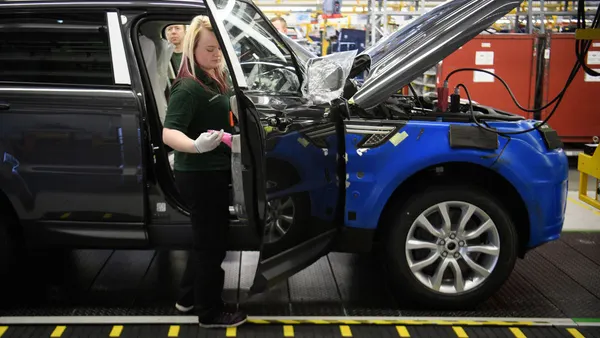Dive Brief:
- UPS announced it will collaborate with Workhorse Group to deploy 50 zero-emission electric delivery trucks in its fleet. After preliminary testing, the companies will deploy a larger fleet in 2019 and beyond.
- UPS says the deployment is of similar cost to acquiring diesel or gasoline trucks, and it expects maintenance and operating costs of electric vehicles to be lower than for fuel trucks.
- The electric trucks will make deliveries during the day and re-charge overnight. Each truck will be designed to have capacity to drive 100 miles on full charge, "ideal for delivery routes in and around cities," the UPS press release stated.
Dive Insight:
UPS' move toward an electric fleet is a win for several parties. The environment benefits from fewer emissions, city dwellers will hear less noise, and the logistics provider saves money.
Urban deliveries are especially costly for 3PLs, as trucks are forced to sit idling in traffic while navigating the last mile. Electric vehicles offer a solution by eliminating fuel costs along with reducing the cost of maintenance.
"The average electric vehicle has a fraction of moving parts as an internal combustion engine," Jeff Soble, a partner with Foley & Lardner’s Automotive Industry team, told Supply Chain Dive. "So the industry belief is that there will be fewer maintenance issues once the technology is commonplace."
Although 3PLs recognize the benefits of electric delivery trucks, they often struggle to adopt them due to high up-front costs associated with replacing a fleet. With UPS able to develop electric vehicles for roughly the same costs as acquiring new fuel trucks, it's breaking "a key barrier to large scale fleet adoption," the company said.
UPS' announcement positions the company as a leader in adopting future tech, and could make it more attractive to shippers.
"If you're the first to market with a viable electric truck fleet … it's going to be a way to help companies become even greener and give them soft value in what they do," Soble said.











